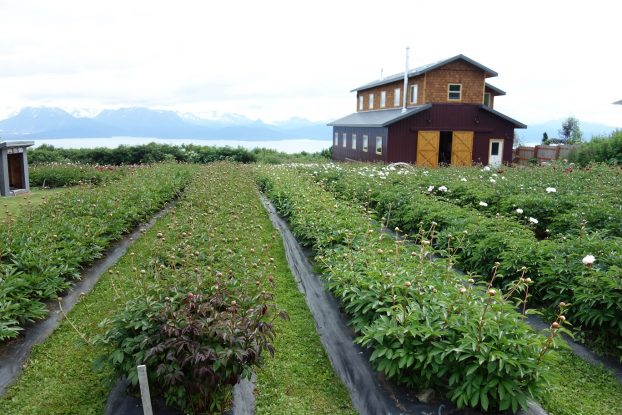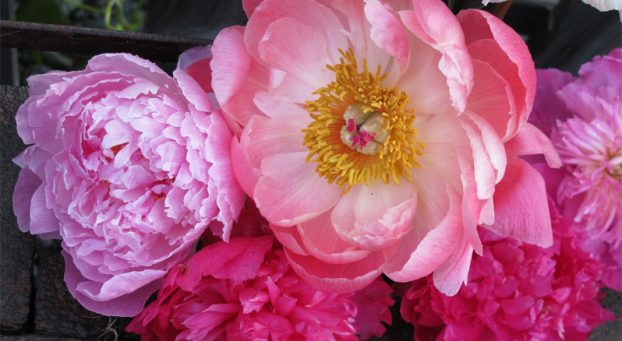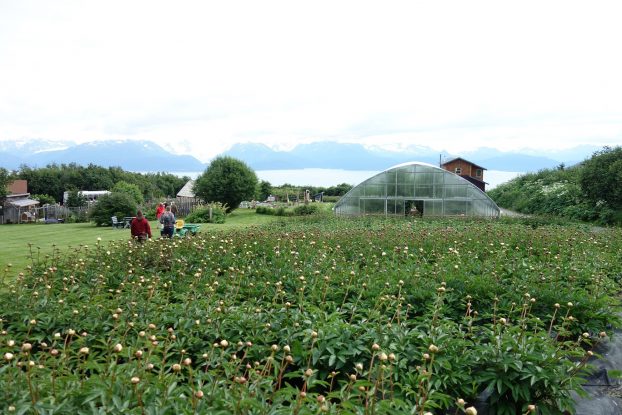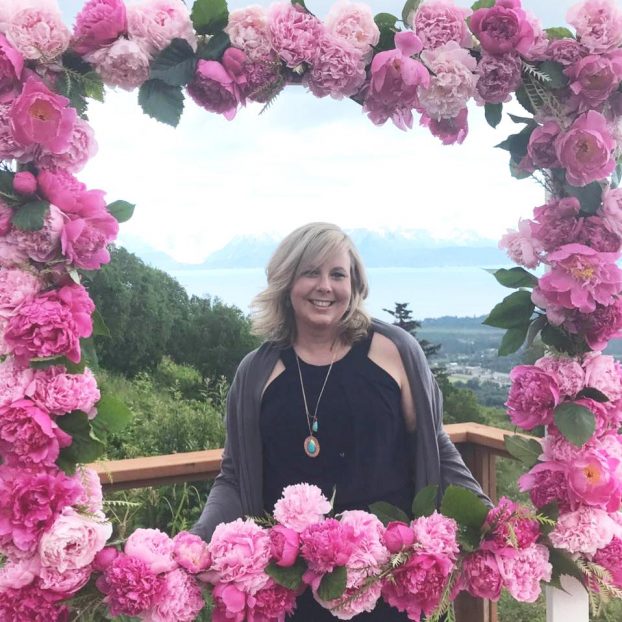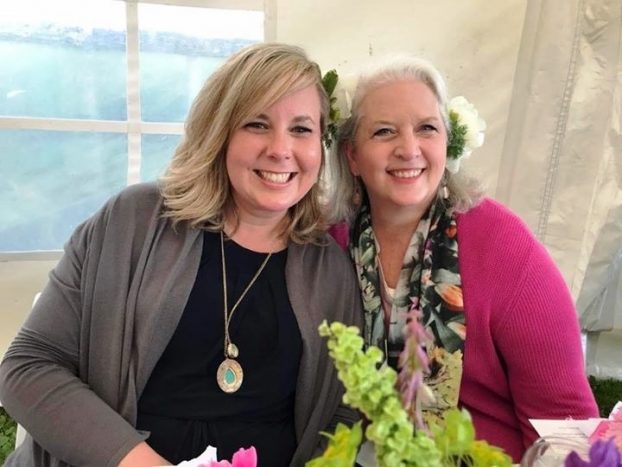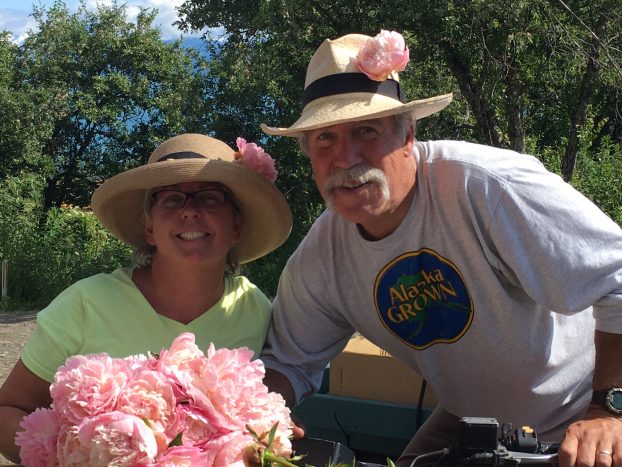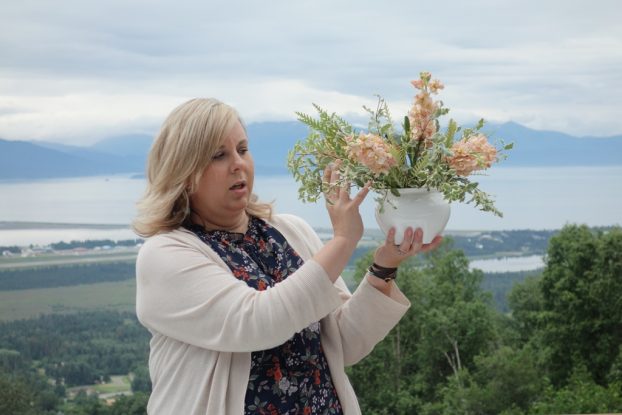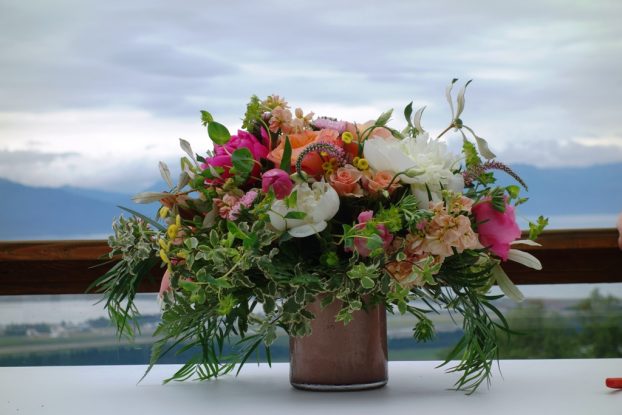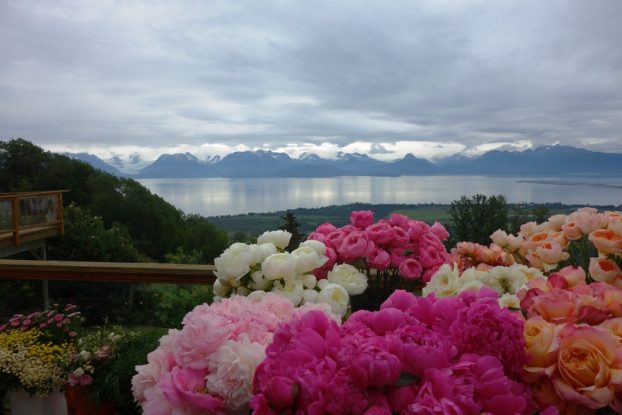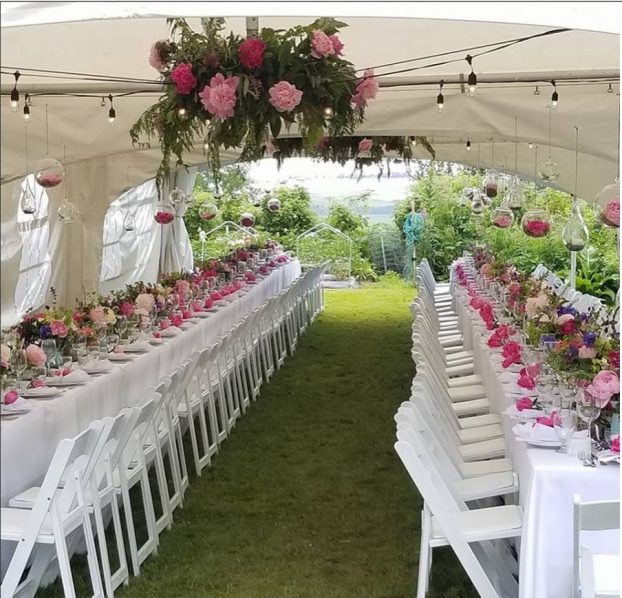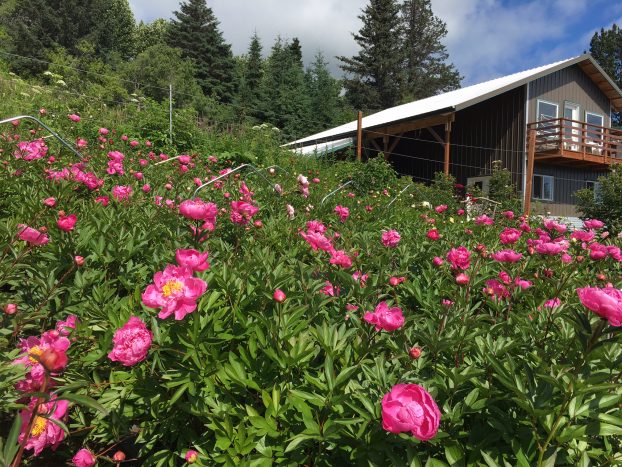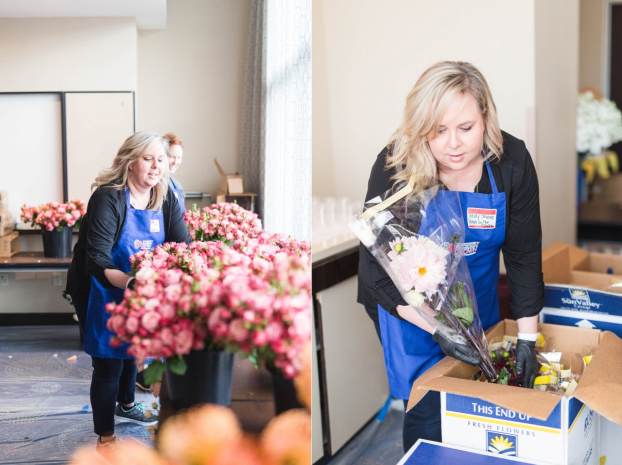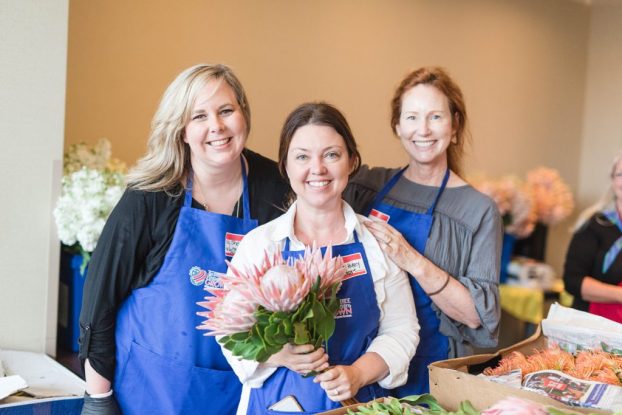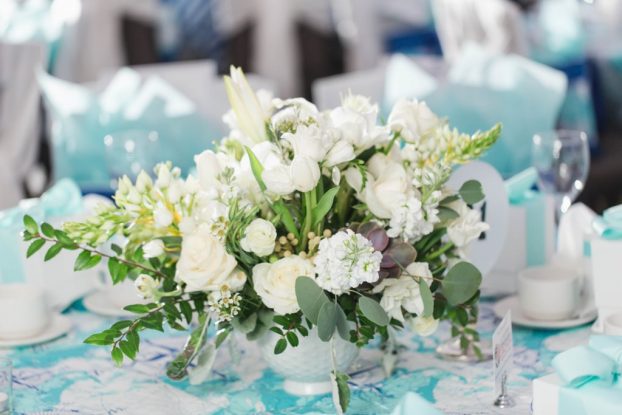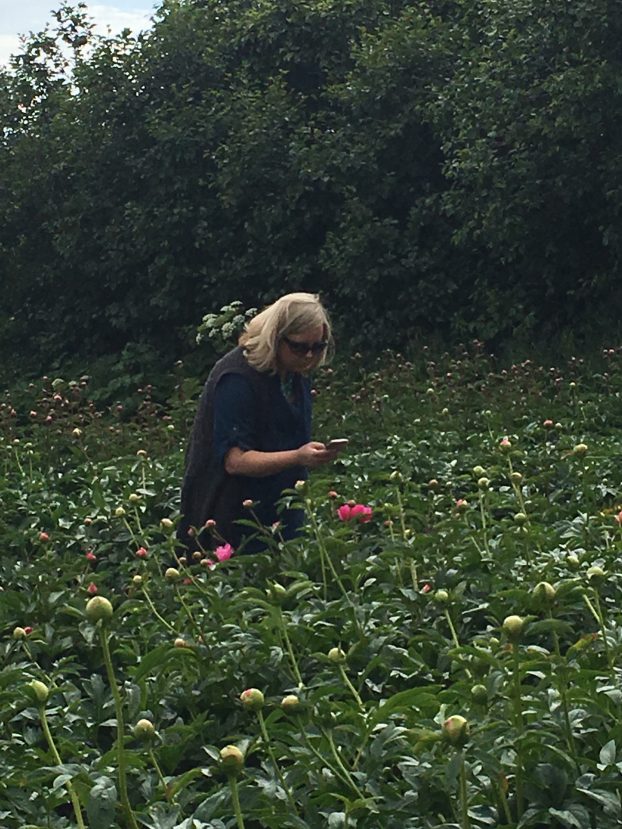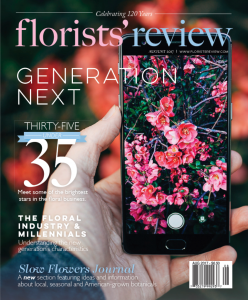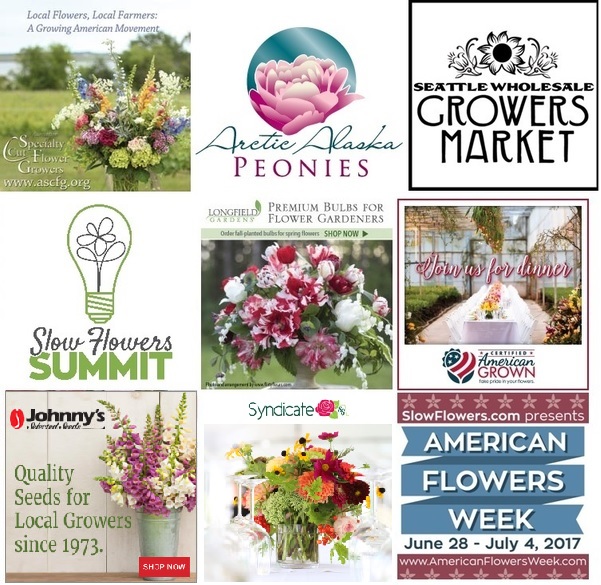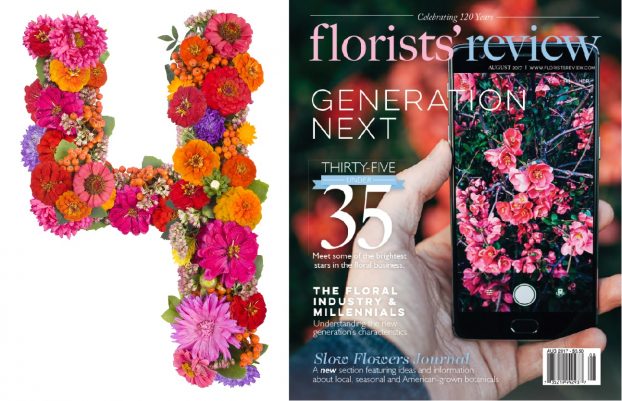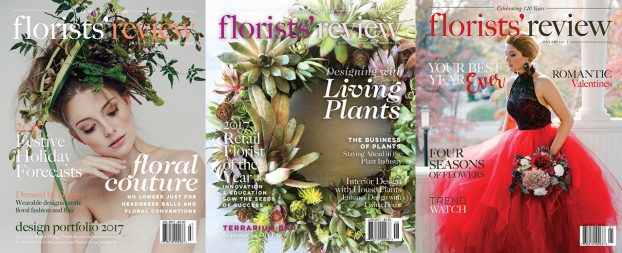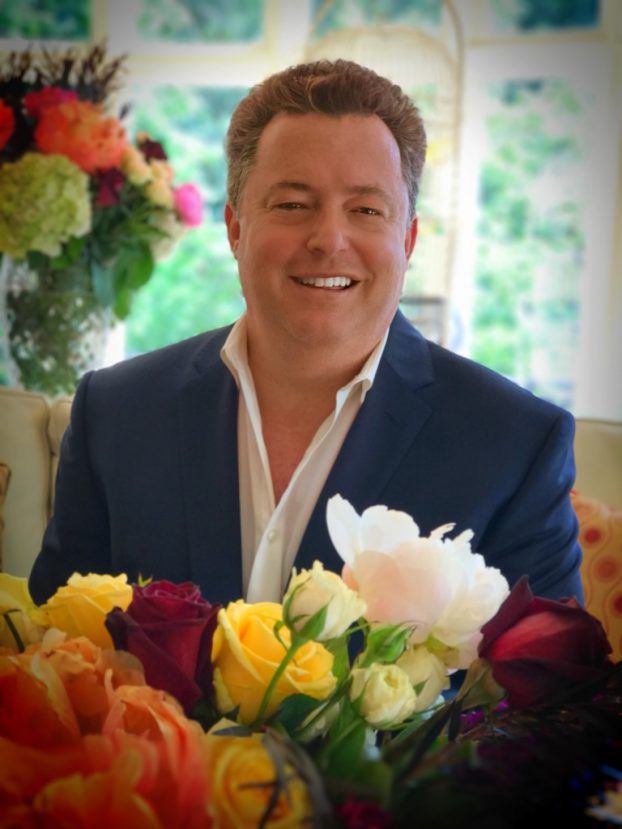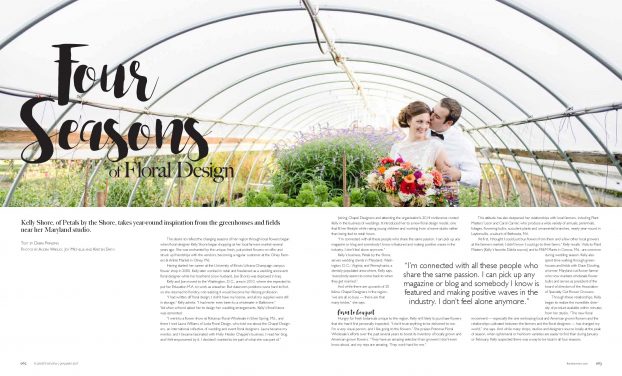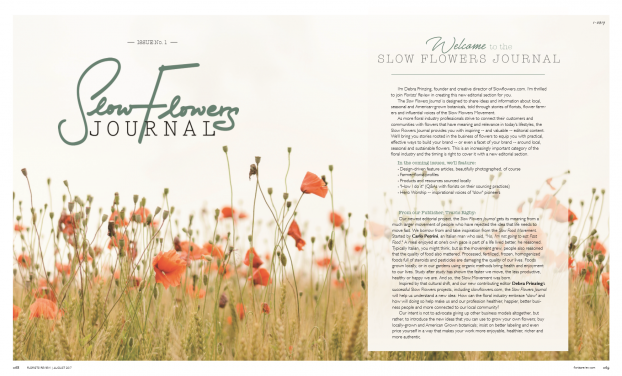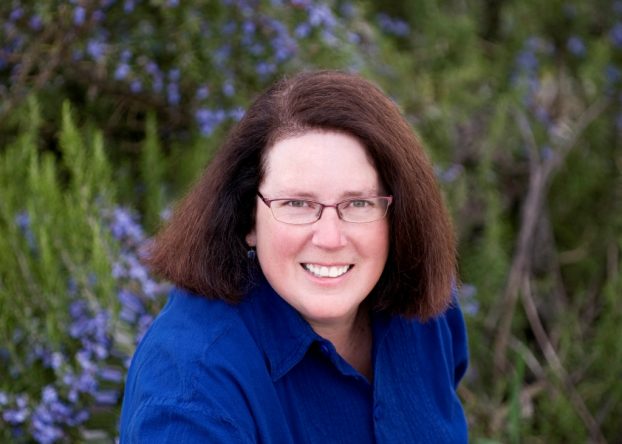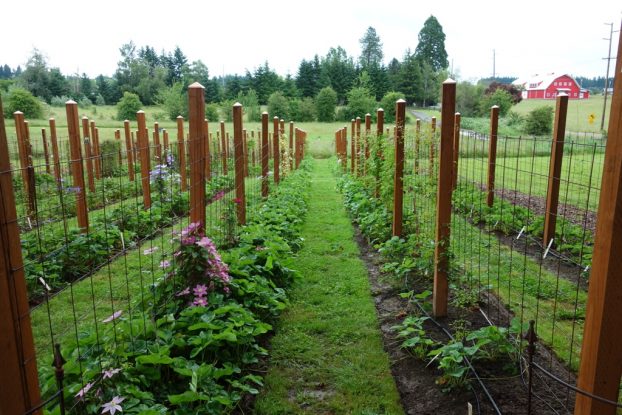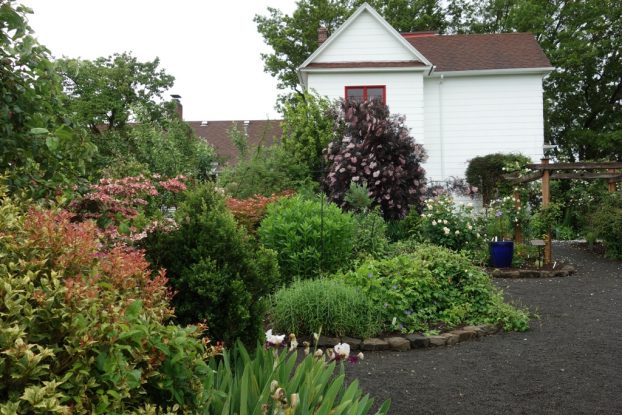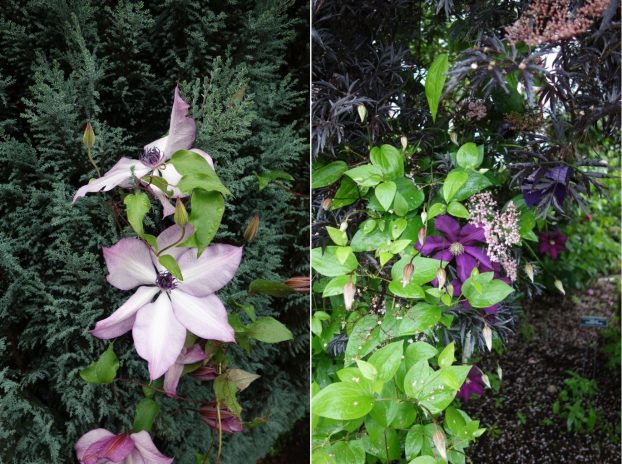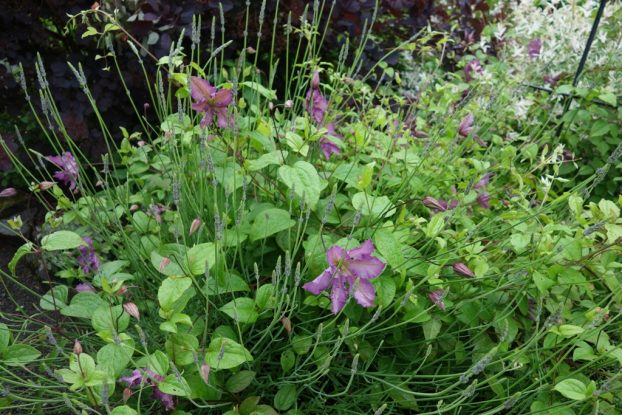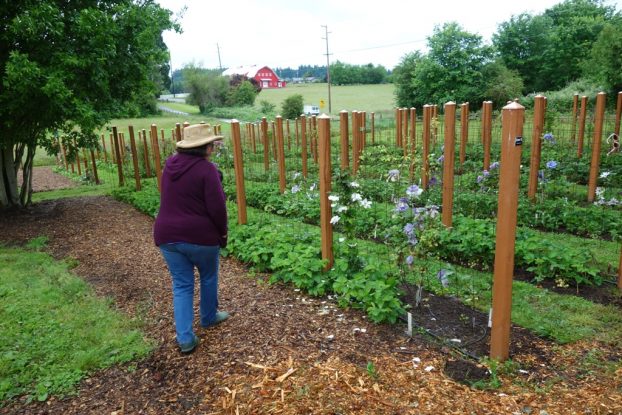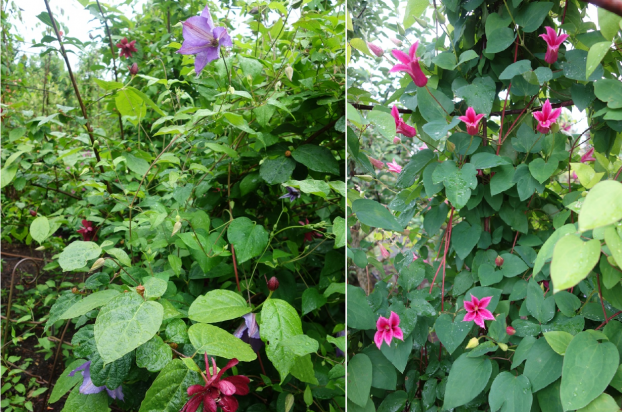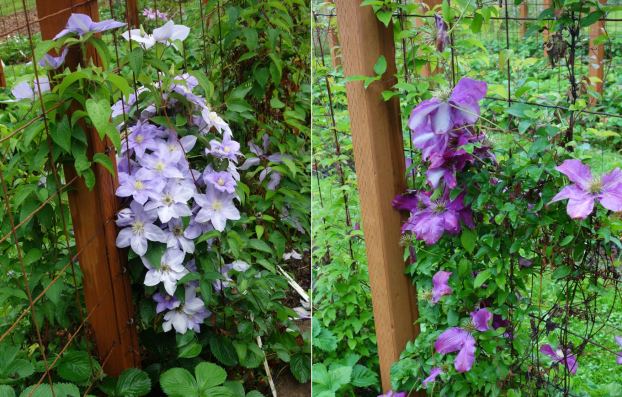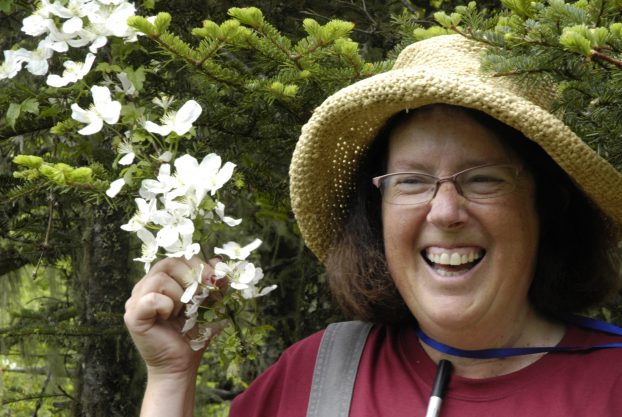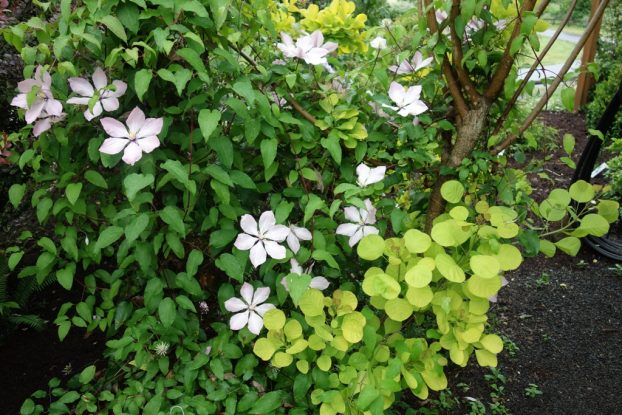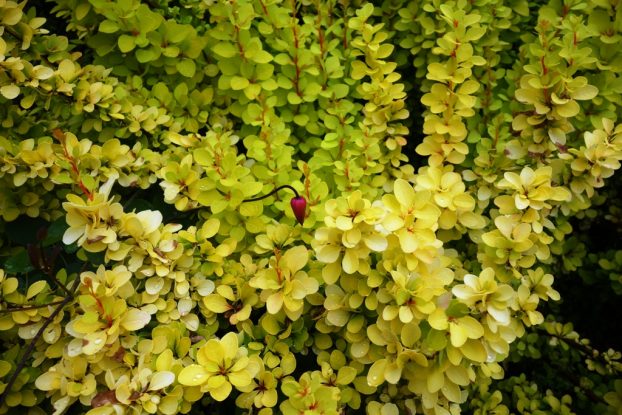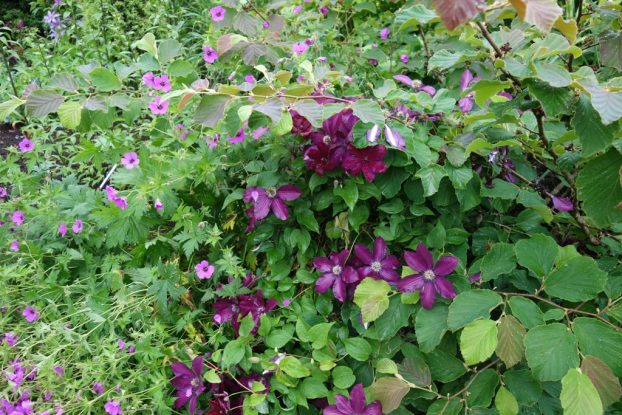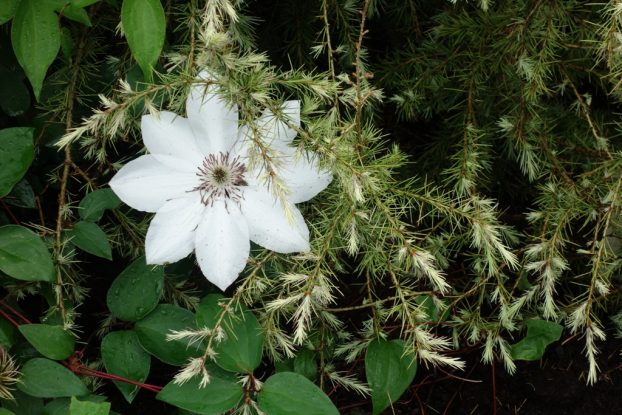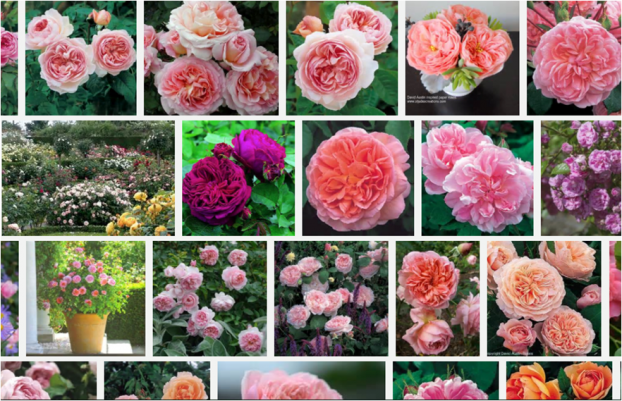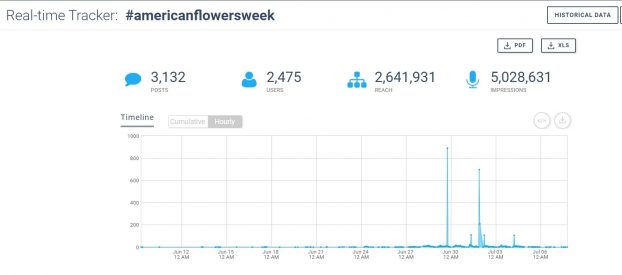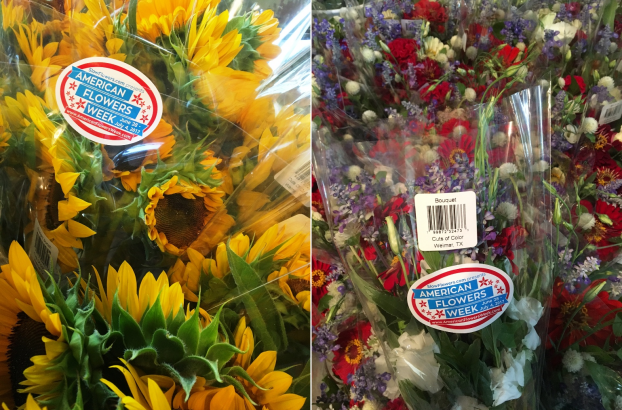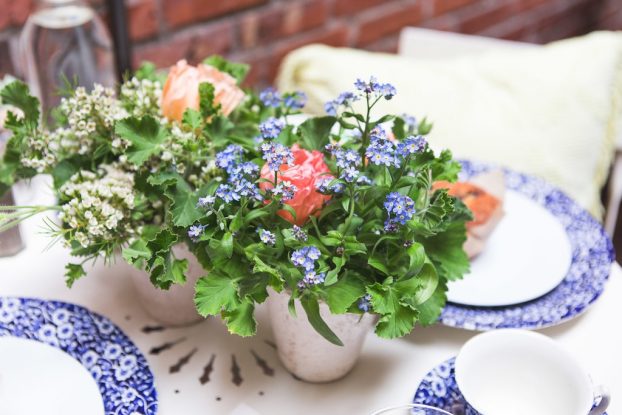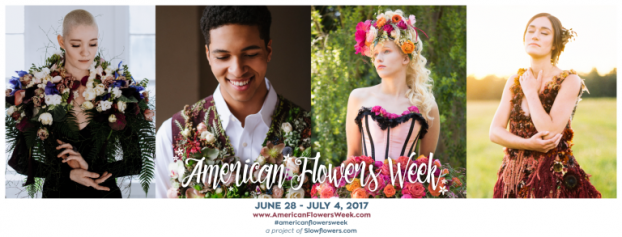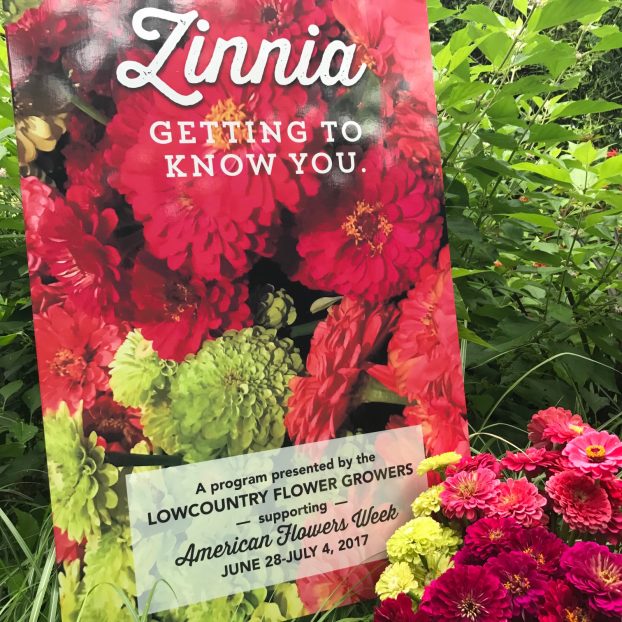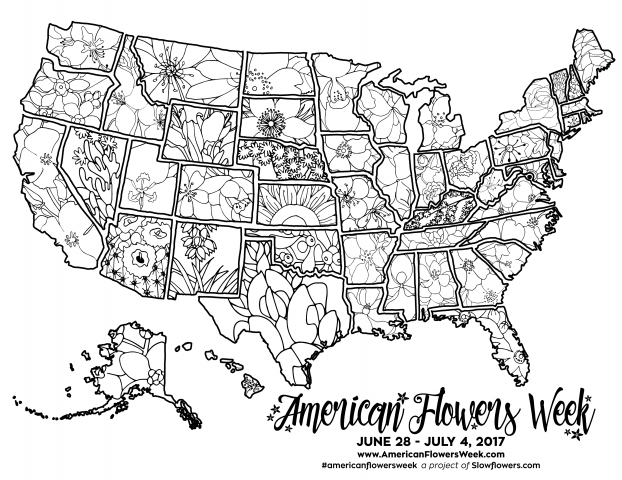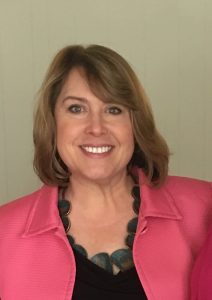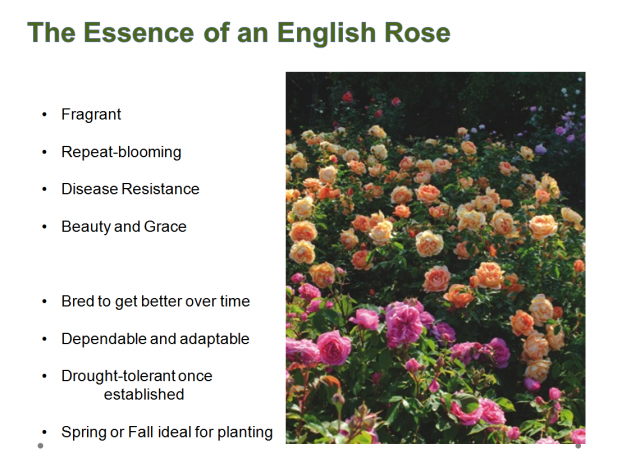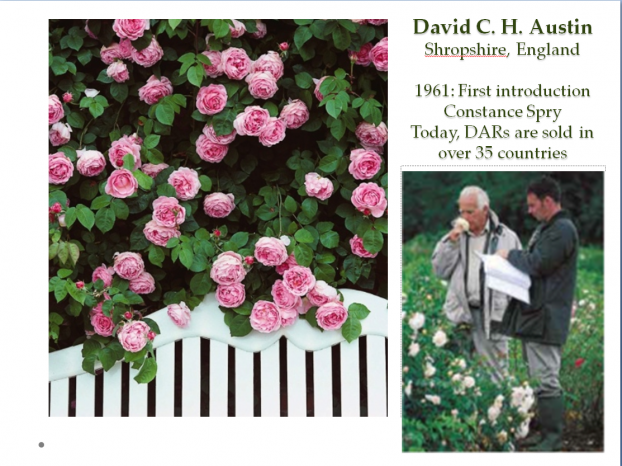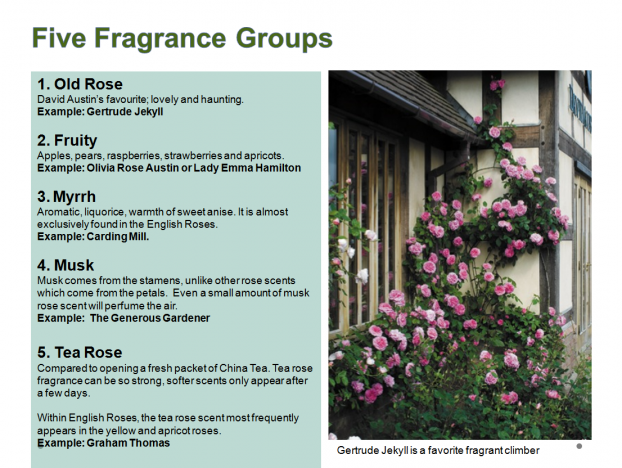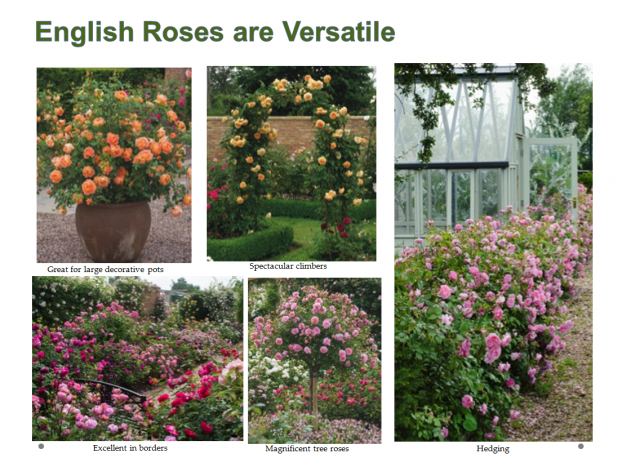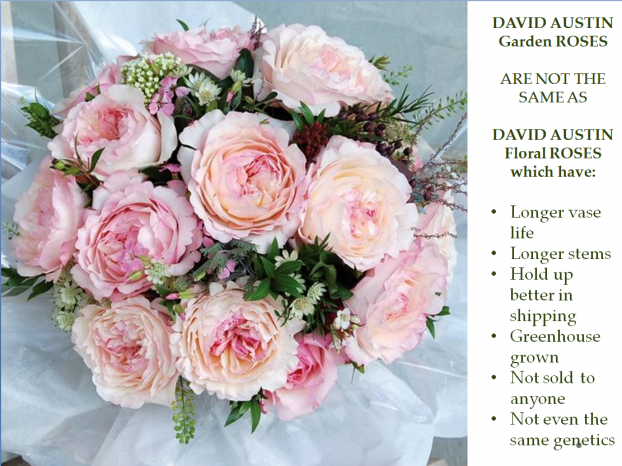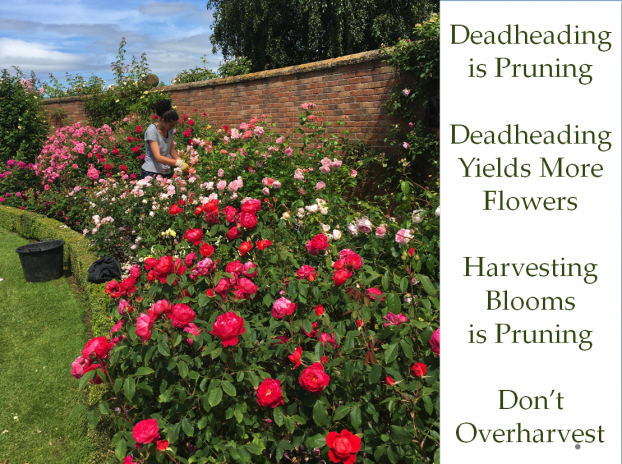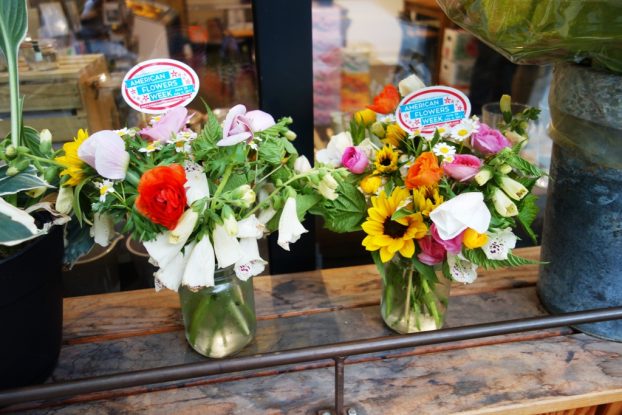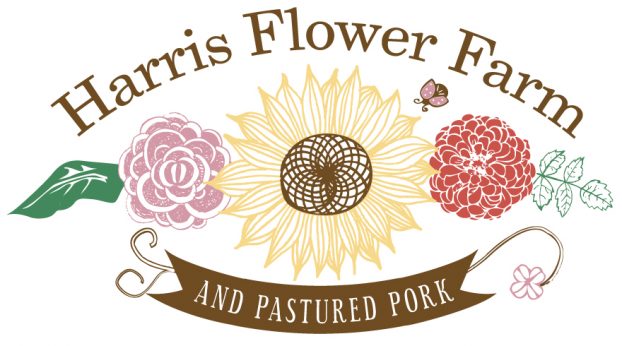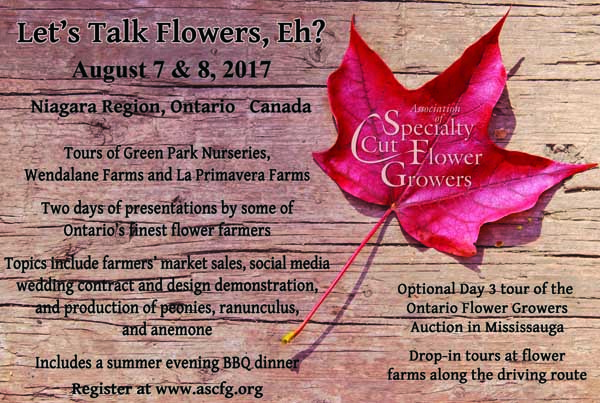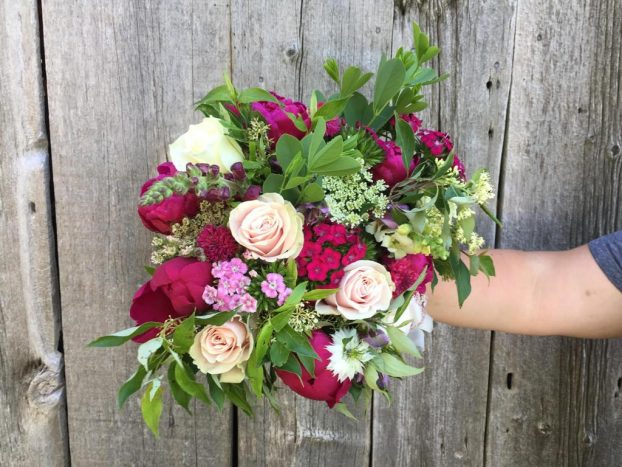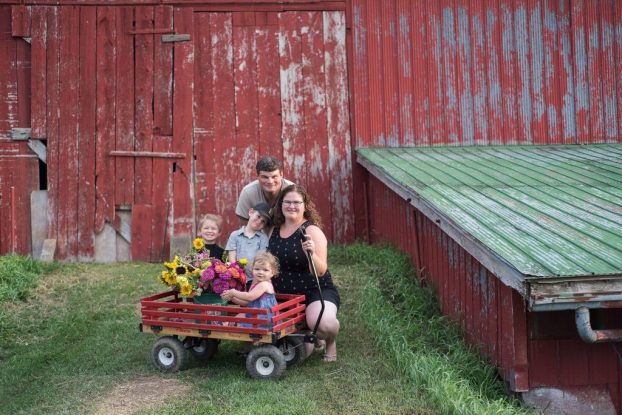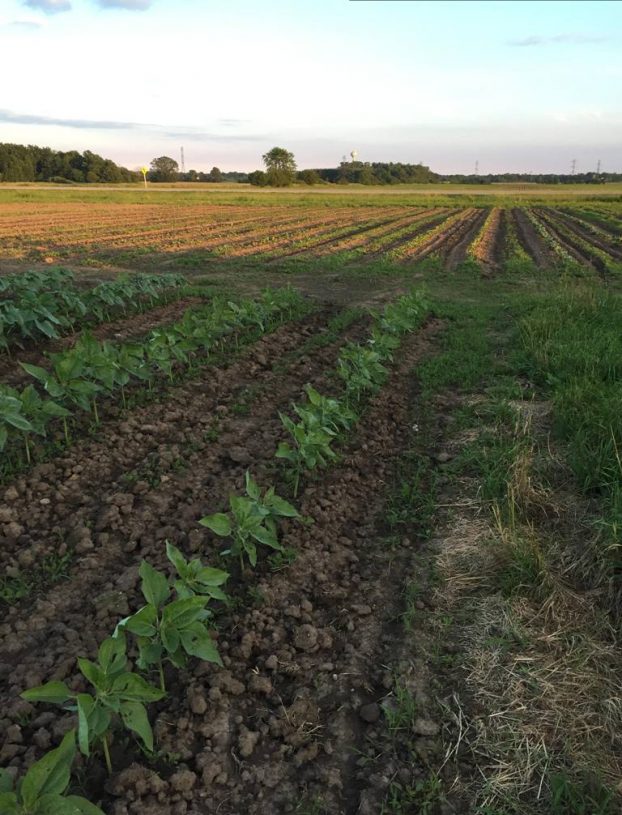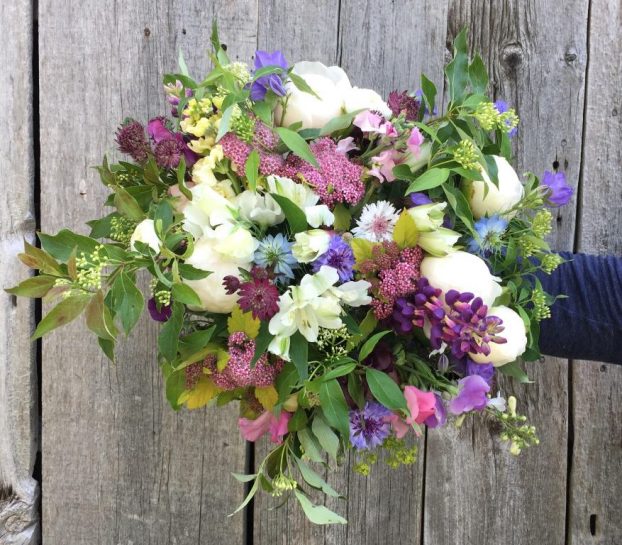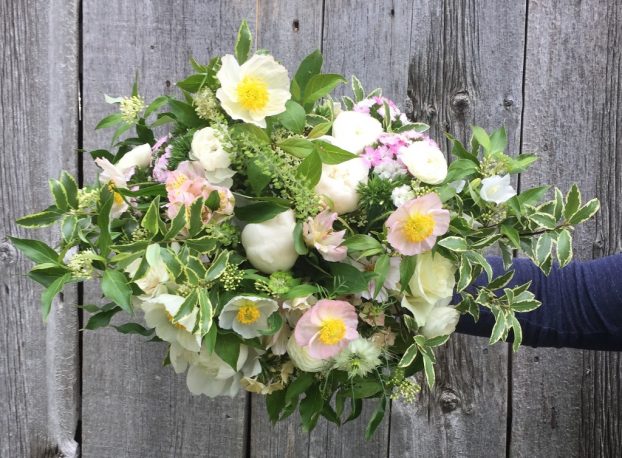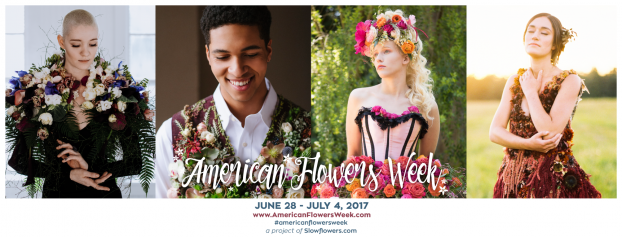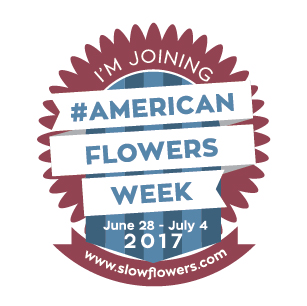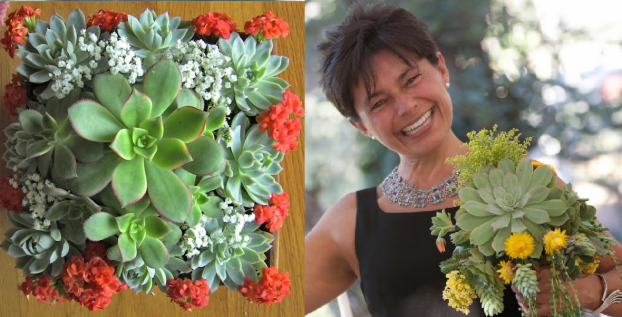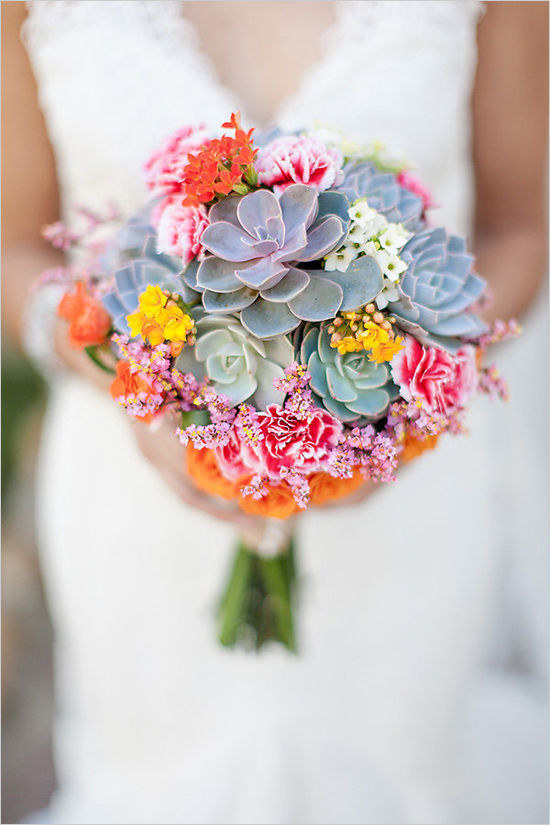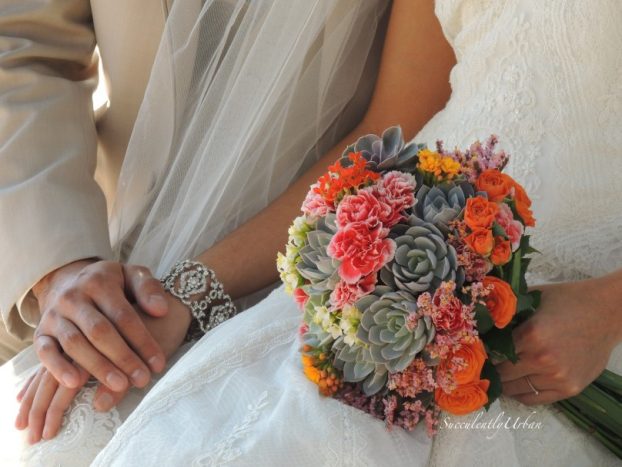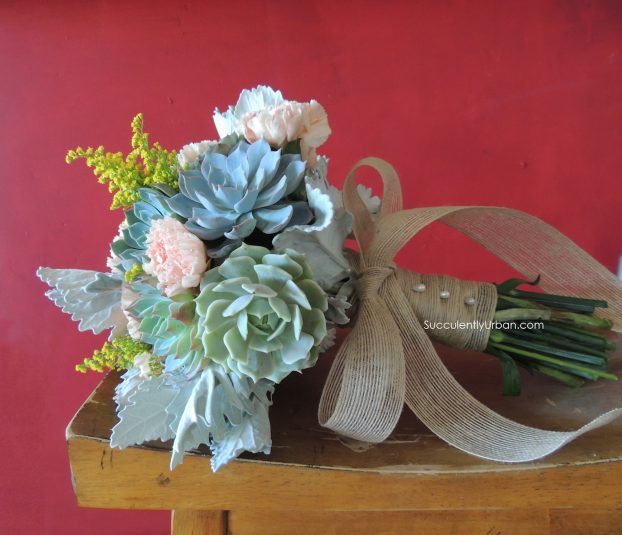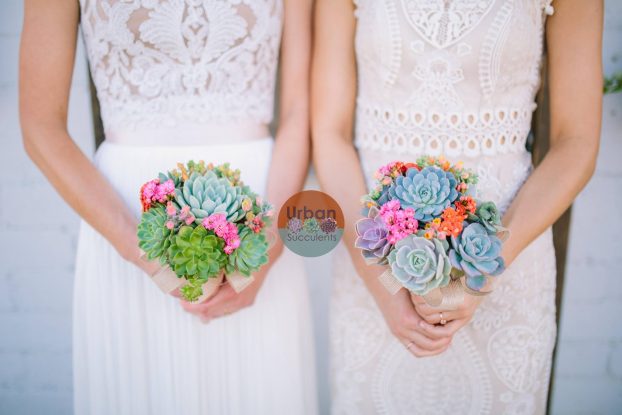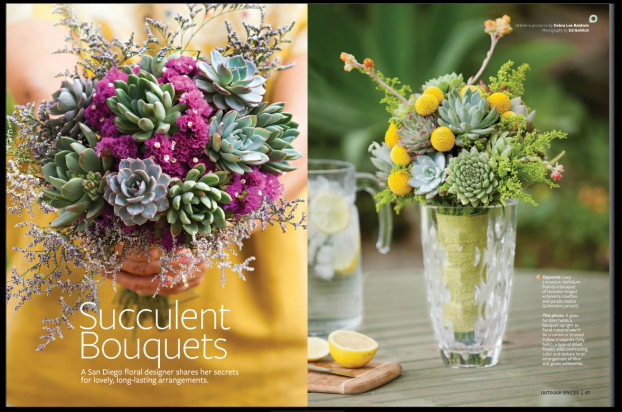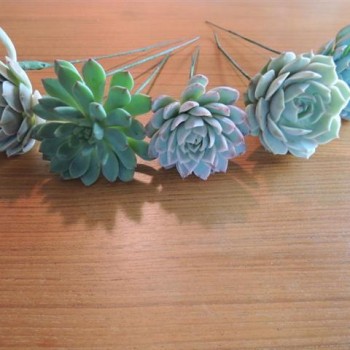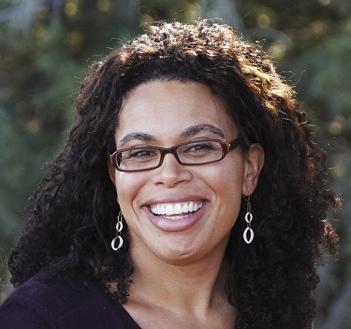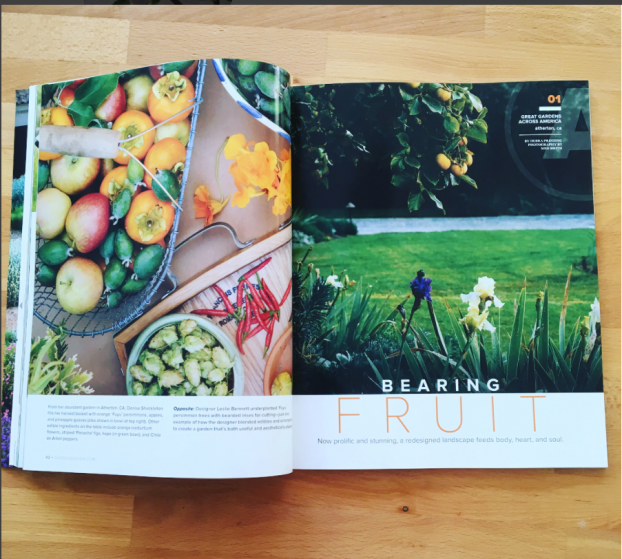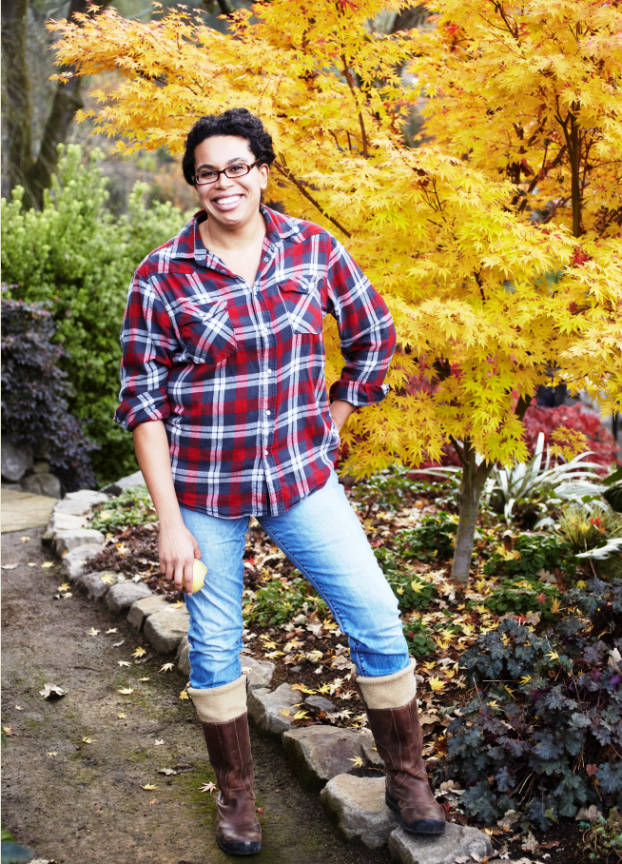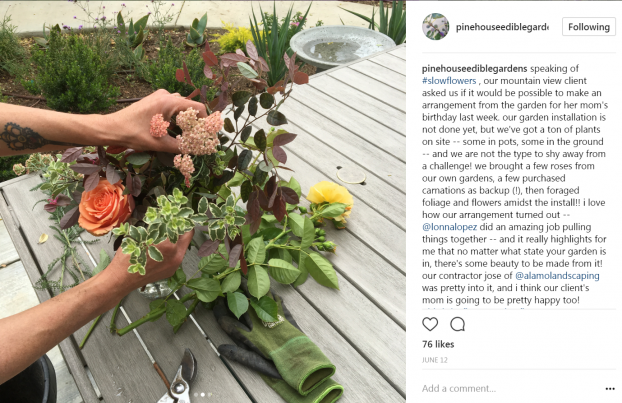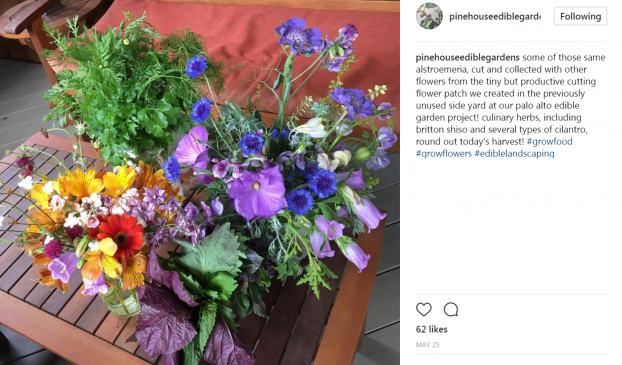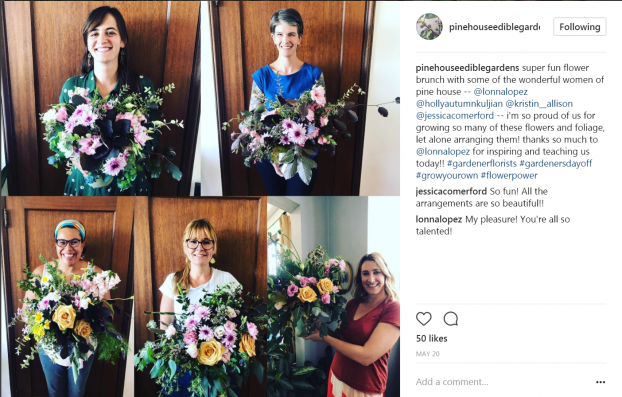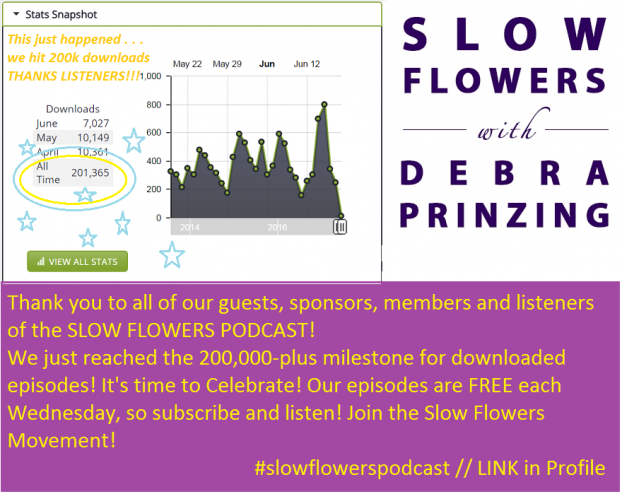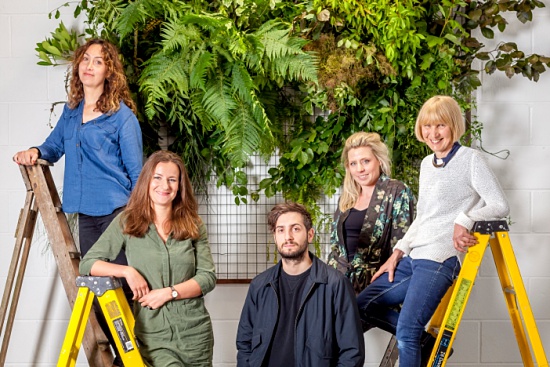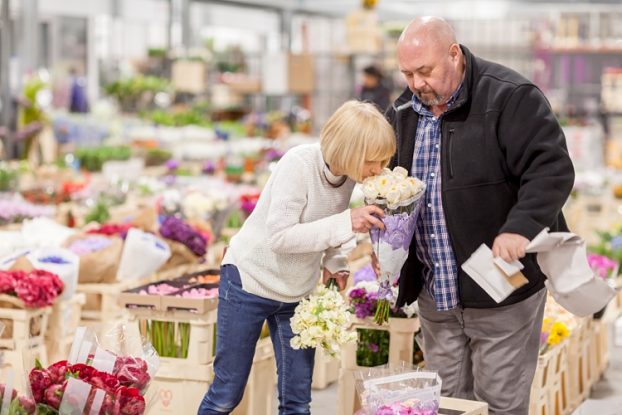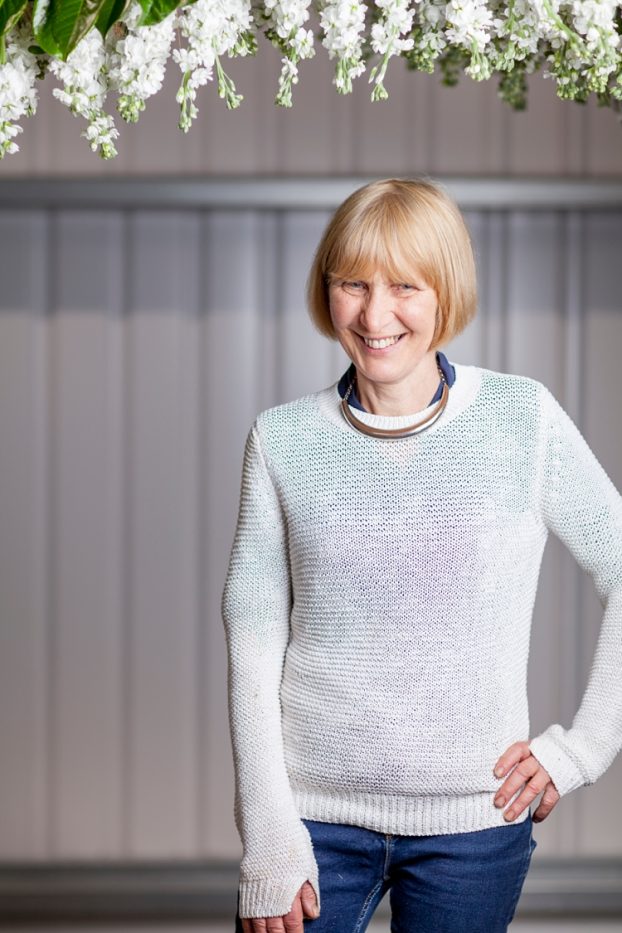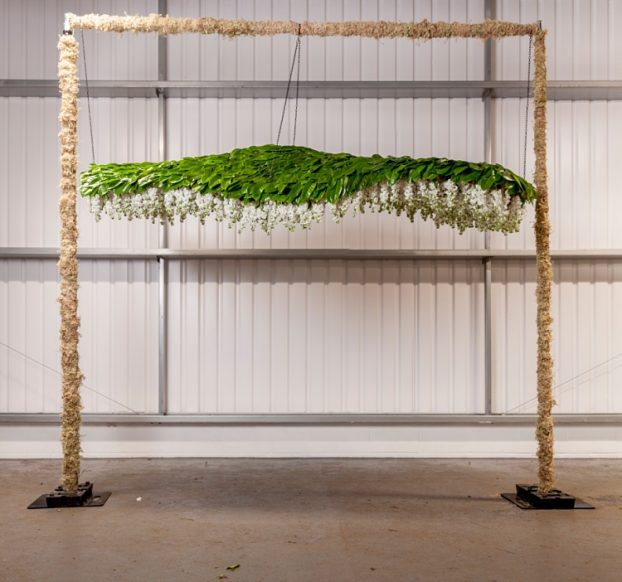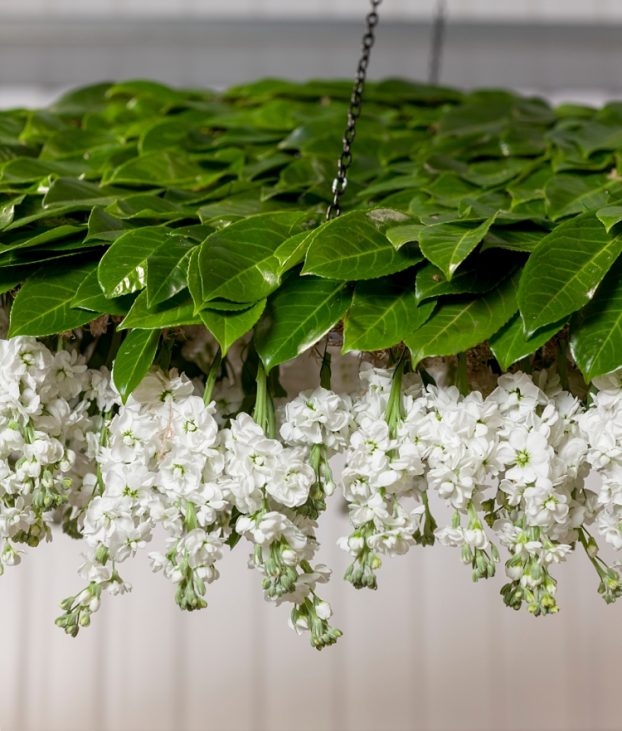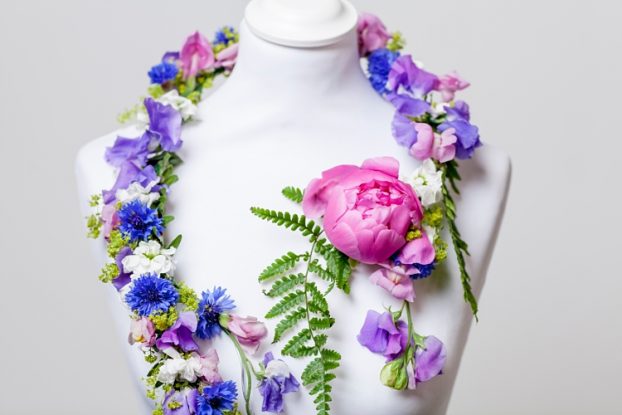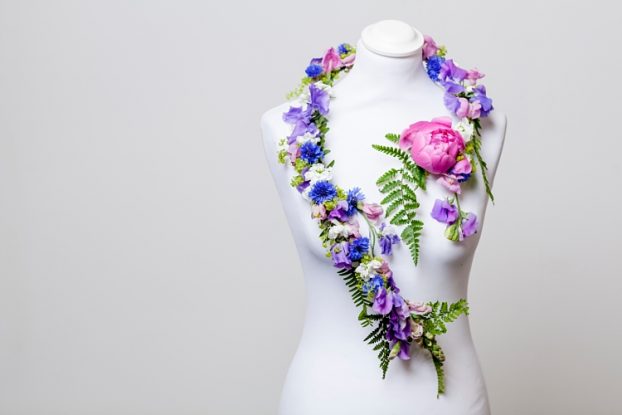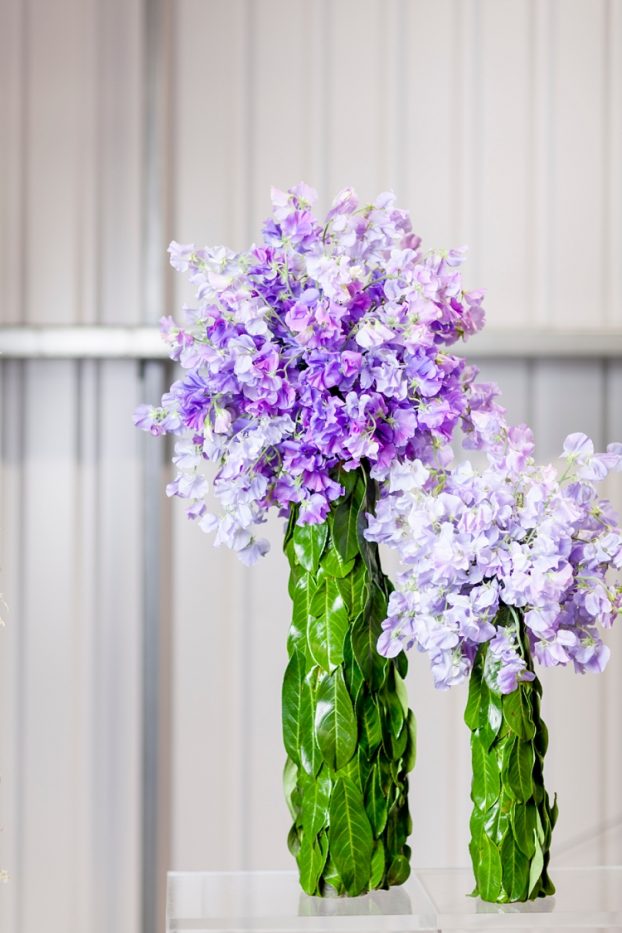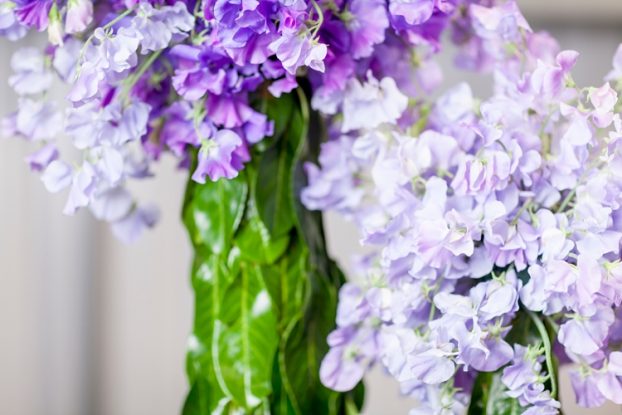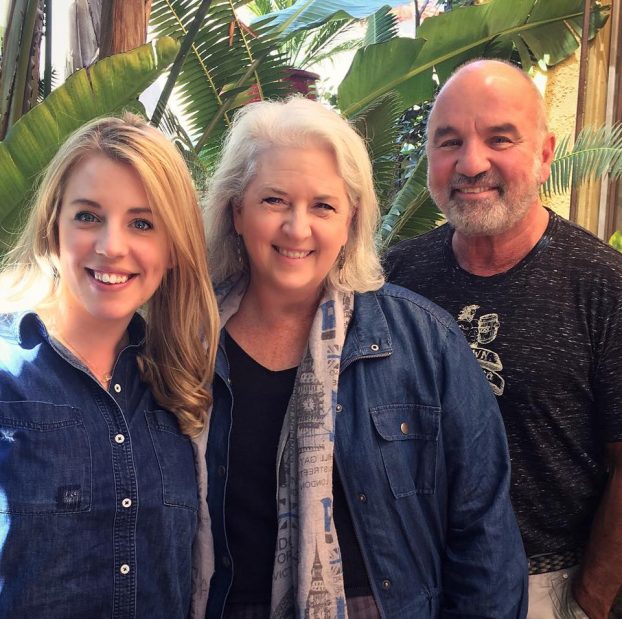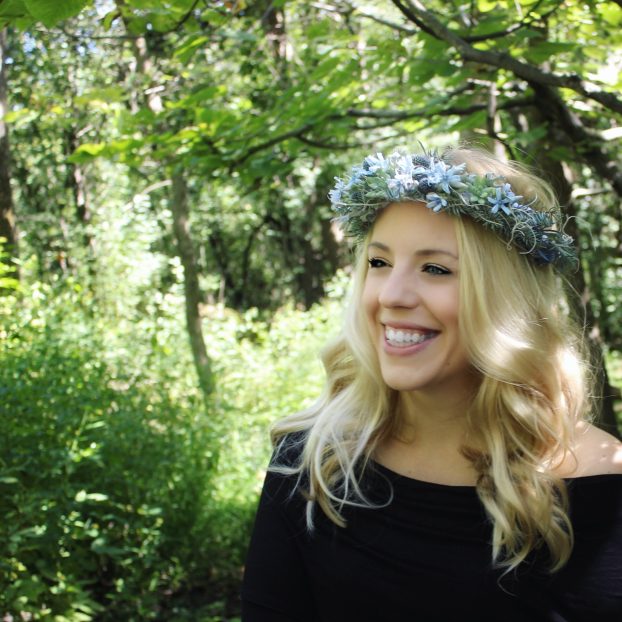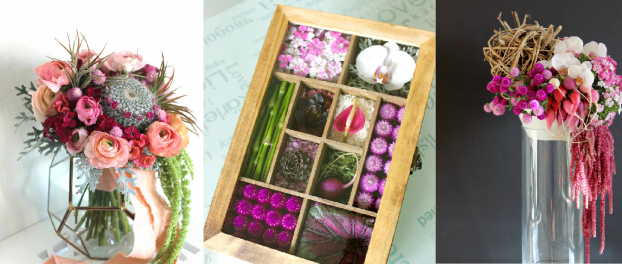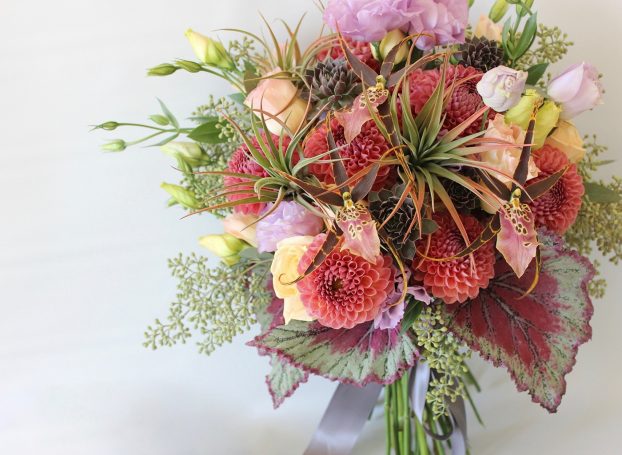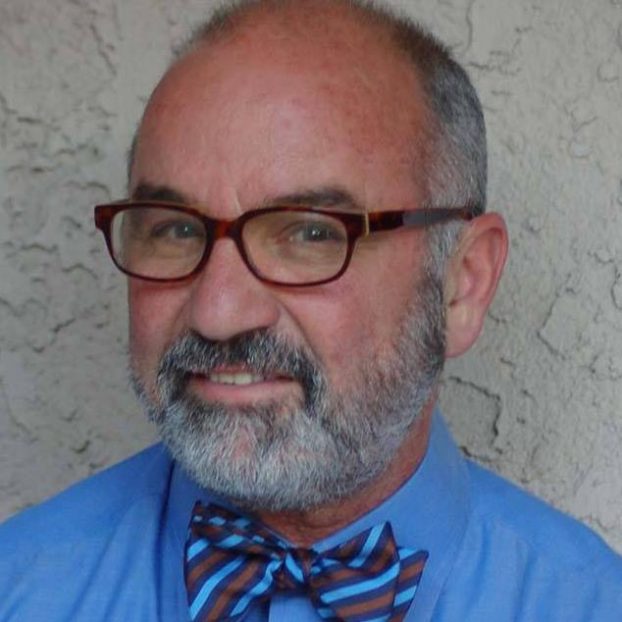Podcast: Play in new window | Download
Subscribe: Apple Podcasts | Podcast Index | RSS | More
There are hundreds of small farms growing hundreds of thousands of stems of beautiful, romantic peonies across the state of Alaska and I suspect that each farmer is as unique and passionate as the next. As you may remember from last week’s episode featuring Kelly Shore of Petals by the Shore, I spent last weekend in Homer, Alaska, one of three major hubs for peonies in the state.
While there, I was delighted to reunite with today’s guest, Michelle LaFriniere of Chilly Root Peony Farm. She and her husband Michael Poole are early adopters who have been growing peonies as cut flowers since planting their first roots in 2009. Their focus wildly beautiful blooms are produced naturally and sustainably, with no chemicals.
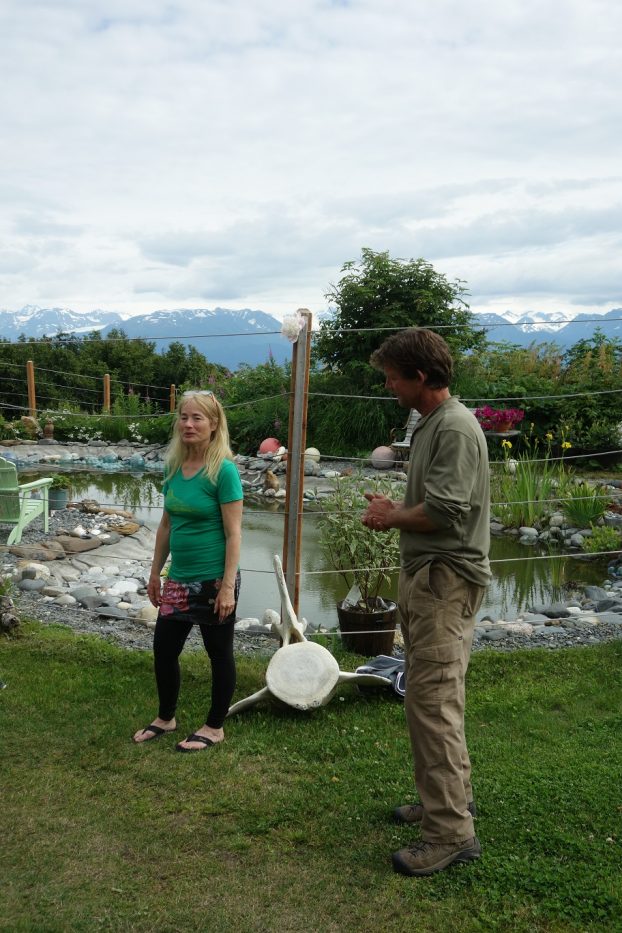
Michelle LaFriniere and Michael Poole recently hosted peony fans on the Alaska Peony Marketing Group’s farm tour.
I met Michelle and Michael on my first trip to Alaska in 2012. Then, I was lured to the 49th state because of its emerging peony agriculture and I had to see what was happening with my own eyes.
At the time, just five years ago, people didn’t really use the words Peonies and Alaska in the same sentence, but I think that’s changing, if the floral industry has anything to say about it.
There are acres and acres of peony fields, flourishing in June and July as far north as Fairbanks (Latitude 64). Further south, peonies bloom in Homer until August and even early September. The cool thing about this chilly state is that an intrepid group of farmers has made a cut flower industry possible. With an entrepreneurial spirit, access to land and a serious can-do approach to farming in Alaska, they seized the opportunity and created a market for their lovely crops at the exact same time when a huge percentage of weddings takes place in the Lower 48.
It’s a sweet spot flower farmers dream of finding. After learning about Alaska’s emerging peony scene in 2011, I set my sights on a first-person trip. In late July 2012, I spent one week there, logging more than 1,500 miles on Alaska’s highways and byways (and a few dirt roads to nowhere!), visiting 15 peony farms and meeting with dozens of wonderful people behind the blooms. I came home totally enthralled with the hardworking character of flower farmers everywhere, especially in Alaska where no one expects you to grow anything except those oversize cabbages that win blue ribbons at the state fair.
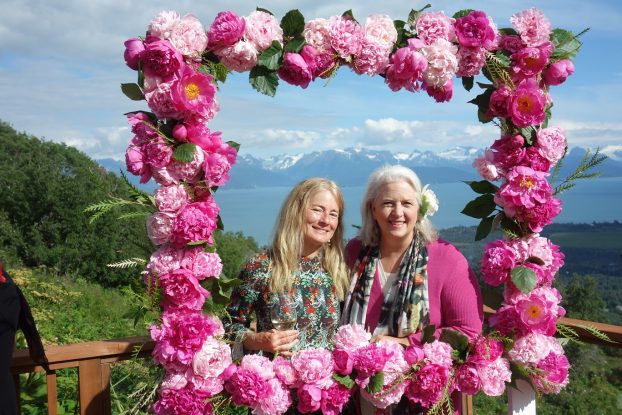
Michelle and I enjoyed time together in late July when I attended the Field to Vase Dinner as a guest of Scenic Place Peonies, where this photograph was taken.
Here’s why it’s so exciting:
Peonies are one of the top bridal flowers in the country, according to many industry sources. Yet in the lower 48 states peonies peak in late May and early June. If you are a bride yearning to hold a bodacious bouquet of peonies on your special day in July, August or September. . . you are simply out of luck. The next chance for peonies comes in the fall, around October, when they bloom on Australia and New Zealand flower farms – and those have to be shipped to you at outrageous expense and a serious carbon foot print.
So, when the folks in Alaska, inspired by the research of professor Pat Holloway, now retired from the department of high altitude agriculture at U of A/Fairbanks and the Georgeson Botanic Garden, discovered they how easy it was to grow peonies and harvest them in July and August, well, a brand-new seasonal flower crop emerged on the scene. The marketplace has responded with a voracious appetite for the pale pink, coral, cream, wine and hot pink blooms. Brides and their floral designers are jumping for joy – and Alaska has its first agricultural export crop. Not fish. Not oil. But PEONIES!
This micro-flower story has taken place in less than a decade, gradually at first, as a few folks planted a few hundred peonies on an acre or two. Then, armed with Pat’s research and information gleaned from her workshops on growing and harvesting, more joined the peony revolution. Like many perennials, peonies take at least three years to become productive, so it has only been in the last five years that significant quantities of blooms have been cut and shipped out of state.
If you are wondering “what’s so special?” about these flowers, I can only tell you that there’s some kind of magical fairy dust in the soil, air, sunlight and altitude of Alaska that adds up to fields of robust, healthy and vivid flowers. Some have stems like you’ve never seen before – 30-inches and longer. The foliage is healthy and true green; the petal colors are intense and vivid when you want them to be and subtly quiet when that’s preferred (in other words, better than the catalog photos!). These plants are extraordinarily responsive to the 20-plus-hours-of-sunshine in the land of the midnight sun – and the sunlight seems to be that secret ingredient for the flowers’ success.
Michelle and Michael are two of the state’s veteran growers. Their farm, Chilly Root, is a family-owned enterprise located on the Kenai Peninsula overlooking stunning Kachemak Bay. Established in 2009 on their rural home site, Chilly Root is a compliment to the couple’s 30-plus-year ongoing commercial fishing business.
The farm is among the latest to produce peony blooms in the state – and that’s a good thing. Chilly Root’s flowers thrive at an elevation of 1,495 feet, which delays their harvest date and extends the peony shipping season for florists and their clients wanting the flowers for late summer or early fall weddings.
Michelle and Michael grow more than 30 different varieties of herbaceous peonies. As they say on their web site: “From root to bouquet, we tend our flowers with pure passion. We bring organic, sustainable and natural beauty to the market and hope to leave the Earth better than we found it.”
You can follow Chilly Root Peony Farm at all these social media places:
Chilly Root Peonies on Facebook
Chilly Root Peonies on Instagram
Chilly Root Peonies on Pinterest
Thanks again for joining me today and getting in on the peony craze!
The Slow Flowers Podcast has been downloaded more than 219,000 times by listeners like you. Thank you to each one of you for downloading, listening, commenting and sharing. It means so much.
If you value the content you receive each week, I invite you to show your thanks and support the Slow Flowers Podcast with a donation — the button can be found on our home page in the right column. Your contributions will help make it possible to transcribe future episodes of the Podcast.
Thank you to family of sponsors
Certified American Grown Flowers. The Certified American-Grown program and label provide a guarantee for designers and consumers on the source of their flowers. Take pride in your flowers and buy with confidence, ask for Certified American Grown Flowers. To learn more visit americangrownflowers.org.
Arctic Alaska Peonies, a cooperative of 50 family farms in the heart of Alaska providing high quality, American Grown peony flowers during the months of July and August. Visit them today at arcticalaskapeonies.com
Seattle Wholesale Growers Market, a farmer-owned cooperative committed to providing the very best the Pacific Northwest has to offer in cut flowers, foliage and plants. The Growers Market’s mission is to foster a vibrant marketplace that sustains local flower farms and provides top-quality products and service to the local floral industry. Find them at seattlewholesalegrowersmarket.com
Longfield Gardens provides home gardeners with high quality flower bulbs and perennials. Their online store offers plants for every region and every season, from tulips and daffodils to dahlias, caladiums and amaryllis. Visit them at lfgardens.com.
Syndicate Sales, an American manufacturer of vases and accessories for the professional florist. Look for the American Flag Icon to find Syndicate’s USA-made products and join the Syndicate Stars loyalty program at syndicatesales.com.
Johnny’s Selected Seeds, an employee-owned company that provides our industry the best flower, herb and vegetable seeds — supplied to farms large and small and even backyard cutting gardens like mine. Check them out at johnnysseeds.com.
Association of Specialty Cut Flower Growers. Formed in 1988, ASCFG was created to educate, unite, and support commercial cut flower growers. It mission is to help growers produce high-quality floral material, and to foster and promote the local availability of that product. Learn more at ascfg.org.
I’m Debra Prinzing, host and producer of the Slow Flowers Podcast. Next week, you’re invited to join me in putting more American grown flowers on the table, one vase at a time. And If you like what you hear, please consider logging onto Itunes and posting a listener review.
The content and opinions expressed here are either mine alone or those of my guests alone, independent of any podcast sponsor or other person, company or organization.
The Slow Flowers Podcast is engineered and edited by Andrew Brenlan. Learn more about his work at KineticTreeFitness.com.









